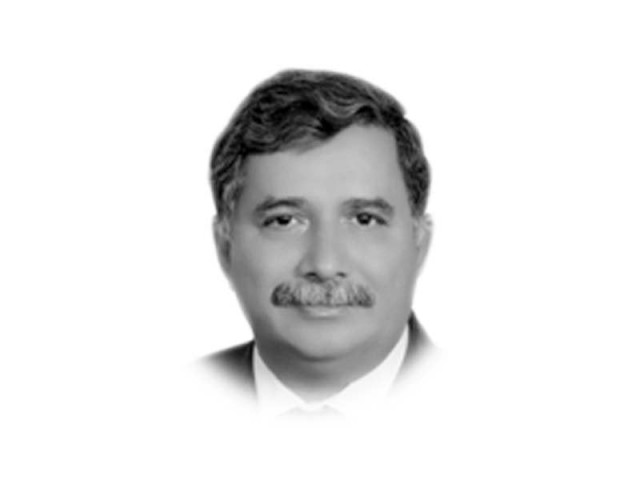Afghanistan: is peace in the offing?
When all is said and done, meaningful peace in Afghanistan will flourish, if people have freedom of choice

The writer is a former secretary to the Home and Tribal Affairs Department and a retired IG. He holds a PhD in Political Science. He currently heads a think tank, Good Governance Forum, and can be reached at aashah7@yahoo.com
Temples, mosques, maternity homes, funerals, playgrounds and markets amongst many other soft targets have been targeted callously. Amongst the victims, most have no connection with the ongoing conflict. The sole objective of the perpetrators is to remain in focus and still be considered as a major player in the conflict.
The scenes in Afghanistan are the portrayal of the Hobbesian state of nature where life was selfish, brutal, nasty and short. In this backdrop, the obvious nagging question is that was the Doha Agreement signed just for the safe withdrawal of US troops and peace for US and Europe or was it a comprehensive peace strategy for the Afghan people as well? Can there be any peace without reduction in violence — a prerequisite for all major players involved in the negotiating process? The other major question that comes to mind is that what kind of peace we are talking about when organisations, groups and individuals roam around freely with their hands stained in the blood of thousands of innocent lives. They keep brandishing guns and muscle while they impose their dictates against the will of the common people. To make matters worse, it is the same common citizens that are caught between the crossfire of the state as well as the opposing forces.
The fundamental rights of the Afghans are at stake as there is no regard for human rights or enabling an environment for those rights. It is pertinent to question why bodies such as the European Union, claiming to be champions of human rights, is lukewarm over the situation in Afghanistan, and why it is not coming forward to grip with the problems. Why have the Afghans been left at the mercy of non-state actors and are forced to live in an environment of awe, despondency and an uncertain future? Has “terror” in Afghanistan finished and is it only considered “terror” when the national interests of a superpower come into play? Is this what we call peace?
Nay! Peace is a very beautiful notion which gives an aesthetic sense. Peace is free from fear. Peace is freedom of choices, speech, movement and right to life and property. Modern and civilised states as well as bodies such as the United Nations exist to ensure that such conditions prevail and provide mechanisms for the resolution of conflicts.
These are very genuine questions of the people who have long remained victims of power politics of the superpowers for the last 41 years, firstly in the name of so called “holy Jihad” and then the “War on Terror”. This brings us to the fundamentals of international politics. Should ideological moorings, morality or realism be the overriding factors of politics?
Going by the history of nations we hardly find a nation that has solely been guided by its ideology, morals, and standards of human rights. The history “between the two wars” (World Wars) and afterwards is a sad commentary on the vacillating stances of nation states on various issues of peace. Wars were fought in the name of peace and also ended in the name of peace.
Wilson’s Fourteen Points for peace and advocacy for the League of Nations, the Treaty of Versailles and later on the US staying away from the League, Britain’s policy of appeasement of Germany and then adopting the course of war, opposition to the Communist Revolution of 1917 in Russia and subsequent alliance with USSR, parceling of spoils of wars among the “Bigs” (the Yalta Conference), declaring Libya (Colonel Gadaffi), Iraq (Saddam Hussein) and Syria (Assad) as the axis of evil and violators of human rights, while guarding other totalitarian regimes in the region — all these policies have been dictated by realpolitik of vital national interests and balance of power.
Afghanistan, similarly, is no exception in this international game of power politics to pursue national interests. While the players at the theatre of global politics have their own doings, the fact of the matter is that “the fault, dear Brutus, is not in our stars. But in ourselves, that we are underlings”.
Admittedly, the US and Nato forces entered Afghanistan under the authorisation of the UN Security Council, and also additionally authorising to set up the International Assistance Force to provide military support to the newly installed government, followed by the establishment of the United Nations Assistance Mission for Afghanistan. Therefore, not only the UN but also the nation states of the world have legal and moral responsibility not to drift Afghanistan towards chaos and a totalitarian regime. But again, the question arises: whether they will adhere to the morality and legality? Similarly, the people in Afghanistan, in particular the intelligentsia and other public opinion leaders, have to organise themselves into political parties above tribal affiliations, having consensus on the minimum agenda of politics of pluralism, if they want peace at their home.
The international community must also be mindful that without proper machinery and monitors to enforce peace in conflict zones, there will always be a risk of violation of human rights. Therefore, UN Peacekeeping Monitors are required to operate in Afghanistan the same way as they have done in other conflicts zones of the world. When all is said and done, meaningful peace in Afghanistan will flourish, if people have freedom of choice.
Published in The Express Tribune, June 17th, 2020.
Like Opinion & Editorial on Facebook, follow @ETOpEd on Twitter to receive all updates on all our daily pieces.














COMMENTS
Comments are moderated and generally will be posted if they are on-topic and not abusive.
For more information, please see our Comments FAQ